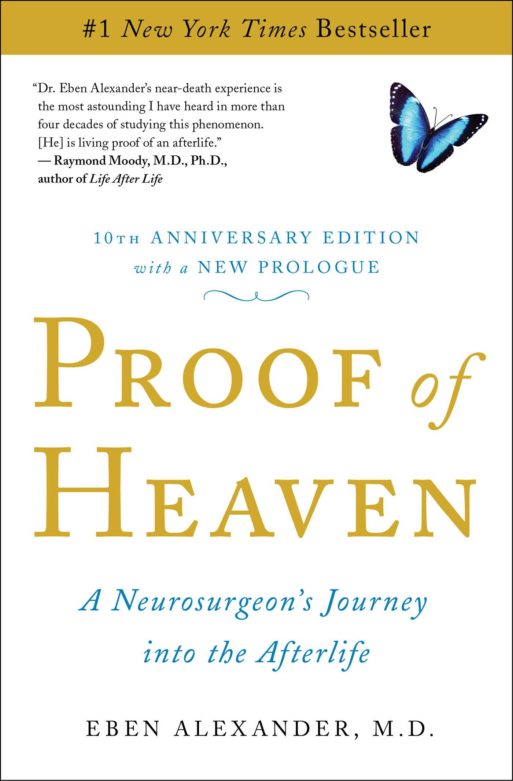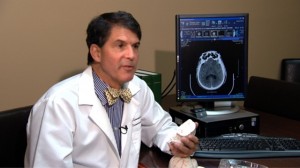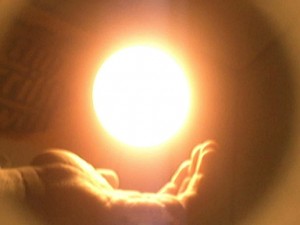 “It was like being struck by a freight train,” said neurosurgeon Eben Alexander in his book Proof of Heaven (2012) on the pain he felt at 4:30 A.M. on November 10th, 2008. As both a stubborn husband and a man with twenty-five years of esteemed medical experience, Alexander assured his wife that he was fine. “Doctors, by and large,” he confesses, “don’t take kindly to being sick. I’m no exception. But by 6:30 A.M., the time I usually left for work, I was virtually paralyzed.”
“It was like being struck by a freight train,” said neurosurgeon Eben Alexander in his book Proof of Heaven (2012) on the pain he felt at 4:30 A.M. on November 10th, 2008. As both a stubborn husband and a man with twenty-five years of esteemed medical experience, Alexander assured his wife that he was fine. “Doctors, by and large,” he confesses, “don’t take kindly to being sick. I’m no exception. But by 6:30 A.M., the time I usually left for work, I was virtually paralyzed.”
For a week Alexander remained in a coma induced by an unprecedented medical condition: E. coli meningitis, an “astronomically rare” disease for adults which had begun to attack his brain. “E. Coli usually resides in the gut,” and it was a mystery to the doctors how the bacteria was able to penetrate his cortex without some kind of massive trauma beforehand. “I’d had at best, only about a 10 percent chance of surviving,” reflects Alexander, “[and] I would have agreed with my stumped doctors that, to put it simply, I had a disease that was virtually impossible for me to have.”
While his family hovered over him, Alexander passed through a profound Near-Death Experience (NDE) that he says opened him up to the “heavenly realm” that inspired Proof of Heaven and his “duty — both as a scientist and hence a seeker of truth; as a doctor devoted to helping people — to make it known that [the NDE] was true.” During a time when his conscious was non-functioning by all scientific understanding, Alexander claims to have received messages from an angelic being, and even from God himself, that we ought to remember one thing in life: we must not fear death because we are loved eternally.
That’s not to say Alexander is classifying these beings as inherently Christian — or Muslim, or Jewish. He refers to them in this vernacular because it’s specific to him (though never a very religious man, Alexander was a “C & E’er: one who only darkens the door of a church at Christmas and Easter”) and because, he writes, it’s simply the closest our vocabulary can get to describing that which transcends our earthly comprehension.

“I’m still a scientist, I’m still a doctor, and as such I have two essential duties: to honor truth and help heal” –Dr. Eben Alexander
But before this loving epiphany, Alexander had to pass through “the Realm of the Earthworm’s-Eye View,” where “language, emotion, [and] logic were gone” in a place that appeared to be “a muddy womb” where “grotesque animal faces bubbled out of the muck, screeching.” Here, Alexander felt his emotions to an unprecedented degree; sensations of pain and agony were felt with an enormity that was not inhuman, but surpassed his earthly emotional capacities. Soon, the doctor began to feel an equally deep sense of joy as his perception became clearer. “I felt like I was being born,” he writes, and “then below me there was countryside. It was green, lush, and earth-like. I was flying, passing over trees and fields. There were children laughing, people sang and danced in circles and sometimes I’d see a dog, running and jumping among them…I was riding together with an angelic girl on the wing of a blue butterfly, greeted by scintillating beings [and] a white orb…a being that nourishes us: the creator.”
 Generally, Alexander’s book has the potential to inspire one of two responses in readers: those who are religious will perhaps (though not necessarily) be more willing to accept his NDE as evidence of a heaven, while secular individuals will need a little more coaxing. Does heaven really look like a butterfly-filled Hidden Valley Ranch commercial? Will there be Labradors?
Generally, Alexander’s book has the potential to inspire one of two responses in readers: those who are religious will perhaps (though not necessarily) be more willing to accept his NDE as evidence of a heaven, while secular individuals will need a little more coaxing. Does heaven really look like a butterfly-filled Hidden Valley Ranch commercial? Will there be Labradors?
“Remember who’s talking to you right now,” Alexander continually stresses, “I’m not a soft-headed sentimentalist. I know what death looks like.” Alexander closes his account with a call to action for the scientific community to accept the conscious as something both connected to our earthly bodies, and profoundly above our humanity. Such an understanding, he says, could only have been illuminated by a proximity to death, and a realization that the universe “will never cease to nurture us with unconditional love.”
Learn more about Dr. Eben Alexander’s experience below:

 “Proof of Heaven” by Eben Alexander, M.D.
“Proof of Heaven” by Eben Alexander, M.D.


 How Dare You Die Now!
How Dare You Die Now!
 Debating Medical Aid in Dying
Debating Medical Aid in Dying
 “Help Me, Helen”
“Help Me, Helen”














